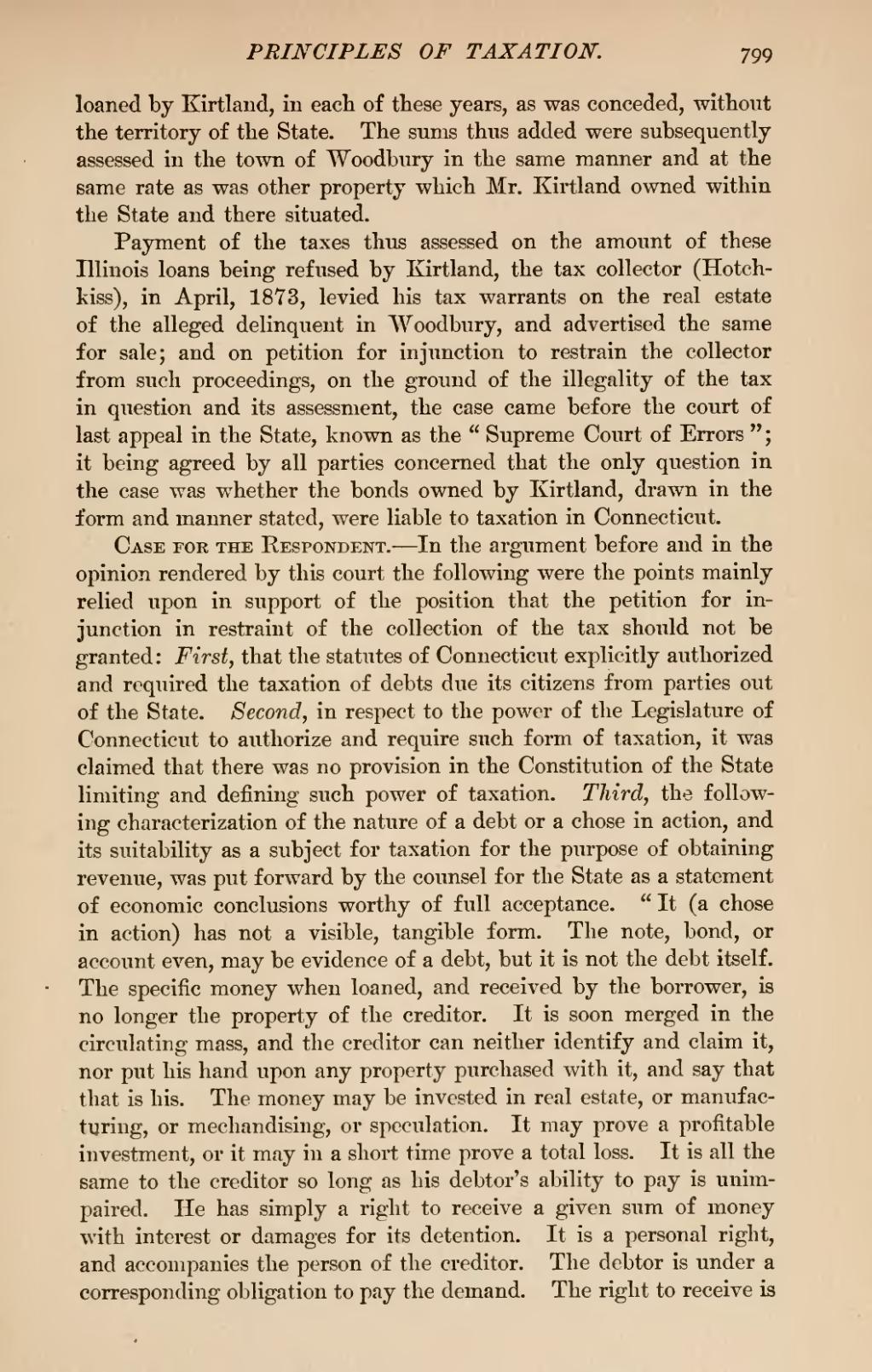loaned by Kirtland, in each of these years, as was conceded, without the territory of the State. The sums thus added were subsequently assessed in the town of Woodbury in the same manner and at the same rate as was other property which Mr. Kirtland owned within the State and there situated.
Payment of the taxes thus assessed on the amount of these Illinois loans being refused by Kirtland, the tax collector (Hotchkiss), in April, 1873, levied his tax warrants on the real estate of the alleged delinquent in Woodbury, and advertised the same for sale; and on petition for injunction to restrain the collector from such proceedings, on the ground of the illegality of the tax in question and its assessment, the case came before the court of last appeal in the State, known as the "Supreme Court of Errors"; it being agreed by all parties concerned that the only question in the case was whether the bonds owned by Kirtland, drawn in the form and manner stated, were liable to taxation in Connecticut.
Case for the Respondent.—In the argument before and in the opinion rendered by this court the following were the points mainly relied upon in support of the position that the petition for injunction in restraint of the collection of the tax should not be granted: First, that the statutes of Connecticut explicitly authorized and required the taxation of debts due its citizens from parties out of the State. Second, in respect to the power of the Legislature of Connecticut to authorize and require such form of taxation, it was claimed that there was no provision in the Constitution of the State limiting and defining such power of taxation. Third, the following characterization of the nature of a debt or a chose in action, and its suitability as a subject for taxation for the purpose of obtaining revenue, was put forward by the counsel for the State as a statement of economic conclusions worthy of full acceptance. "It (a chose in action) has not a visible, tangible form. The note, bond, or account even, may be evidence of a debt, but it is not the debt itself. The specific money when loaned, and received by the borrower, is no longer the property of the creditor. It is soon merged in the circulating mass, and the creditor can neither identify and claim it, nor put his hand upon any property purchased with it, and say that that is his. The money may be invested in real estate, or manufacturing, or mechandising, or speculation. It may prove a profitable investment, or it may in a short time prove a total loss. It is all the same to the creditor so long as his debtor's ability to pay is unimpaired. He has simply a right to receive a given sum of money with interest or damages for its detention. It is a personal right, and accompanies the person of the creditor. The debtor is under a corresponding obligation to pay the demand. The right to receive is

